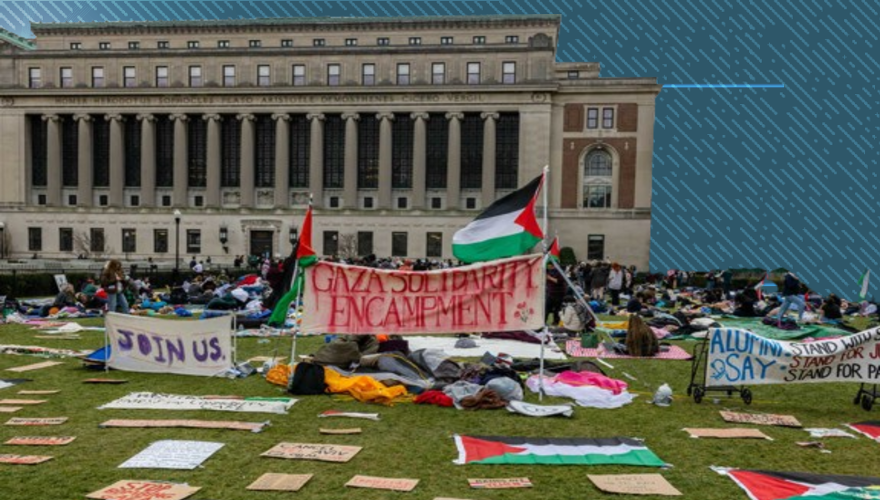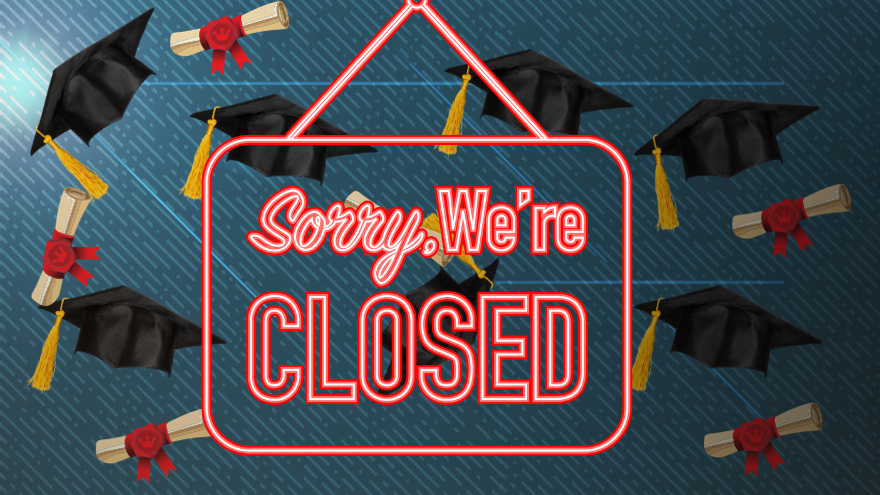Faculty at Columbia University rallied alongside a pro-Gaza encampment in support of suspended and arrested students on Monday.
The Gaza encampment, which kicked off last week, comes as part of students' larger pro-Palestinian protests around campus. Over 100 students were arrested at Columbia University last week after refusing to leave the encampment. Other students who were arrested last week were also served temporary suspensions by the university, including Minnesota Rep. Ilhan Omar's daughter, Isra Hirsi.
Critics of the protests and encampment have argued students have engaged in antisemitic behavior.
On Monday, hundreds of faculty members joined in protest of the university in support of arrested and suspended students.
SCNR News field reporter Elad Eliahu caught up with one Columbia University professor who discussed her decision to protest in support of students.
"We are trying to reclaim our campus for reasonable debate and exchange rather than the violence and provocation that we're seeing on our campus, and especially sidewalks outside," the professor said.
Eliahu asked the professor for her response to critics who claim pro-Palestinian protestors have called for violence against Jewish students, to which the professor reiterated that the protest was about "academic freedom."
"[It's] about reasonable debate, and values of free speech, the right to protest. Period," she said. "This faculty rally is not taking any position on any of the politics. We are merely asking for reason to debate. We're asking to be able to teach and learn. Period."
Eliahu then asked the professor her opinion on calls for Columbia University President Minouche Shafik's resignation, though the professor declined to comment.
Calls for Shafik's resignation have grown since last week's protests and the Gaza encampment kicked off. New York Rep. Elise Stefanik issued a Sunday statement calling for Shafik's resignation after the Columbia University president testified before the House education panel.
"Today, I formally demanded Columbia President Shafik resign following her failure to put an end to the mob of students and agitators spreading antisemitism and calling for acts of terrorism against Jewish students at Columbia," Stefanik wrote on X.
On Sunday evening, a group of pro-Palestinian protestors created a human blockade in an attempt to push Jewish and pro-Israel students out of the Gaza encampment.
Later Sunday, Columbia-Barnard Rabbi Rav Elie Buechler issued a message to students via WhatsApp discouraging Jewish students from attending campus due to fears of "extreme antisemitism and anarchy."
"What we are witnessing in and around the campus is terrible," Buechler wrote. "The events of the last few days, especially last night, have made it clear that Columbia University's Public Safety and the NYPD cannot guarantee Jewish student's safety in the face of extreme antisemitism and anarchy."
"It deeply pains me to say that I would strongly recommend you return home as soon as possible and remain home until the reality in and around campus has dramatically improved," he continued. "No one should have to endure this level of hatred, let alone at school."
On Monday morning, pro-Israel professor Shai Davidai appeared to have his access card disabled when attempting to enter an area within the Gaza encampment.
Davidai said he recently asked Columbia University COO Cas Holloway and Columbia University Appointed Vice President of Public Safety Gerald Lewis Jr., who were present on Monday morning, if Islamic militant group Hamas was a terrorist organization during a faculty meeting, though the administration declined to answer according to the professor.
Holloway said he was willing to escort Davidai to a different section of the campus, though the professor protested the suggestion.
"I am a professor here!" Davidai shouted. "I have every right to be everywhere on campus! You cannot let people that support Hamas on campus and me, a professor, not go on campus."
Davidai and a group of fellow pro-Israel supporters shouted their demands to be allowed access to that section of the campus.
"I have a civil right as a Jewish person to be on campus!" Davidai shouted. "I have a right as a professor employed by the university to be on campus."

